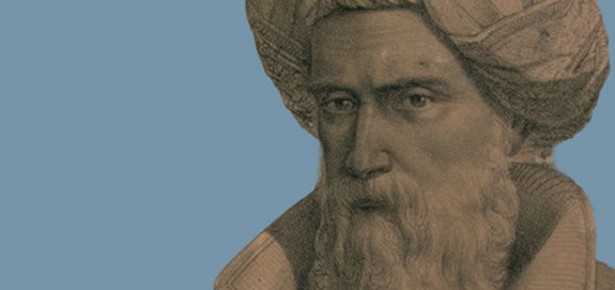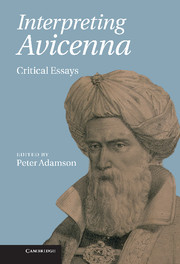
I’m in the habit of saying that Avicenna is the most important medieval philosopher. When I want to annoy people who work on Latin medieval philosophy I go on to add, “more important than Aquinas, for instance, who stole a lot of his best ideas from Avicenna.” Of course, the question of which philosopher was “most important” is inevitably a matter of opinion, at least if we’re talking about the pure quality of the ideas. But measuring by historical influence, you can’t really look past Avicenna (who died in 1037 CE) for the title of most significant thinker between Plotinus (who founded Neoplatonism and lived in the 3rd century) and, to avoid annoying my esteemed Latinist colleagues, Aquinas (12th century). He’s the only medieval thinker to have exerted significant influence in all three Abrahamic faiths: Islam, Judaism, and Christianity. His ideas flowed into Latin Christendom along with the rest of the Arabic scientific literature rendered into Latin in the centuries leading up to Aquinas’ lifetime. Not only Aquinas, but also Albert the Great and Duns Scotus, took inspiration from him. In Judaism, his impact was more indirect, since he was barely translated into Hebrew. But there’s more than a little Avicenna in Maimonides (actually he’s another good candidate for most significant medieval philosopher; the field is getting crowded). All Jewish intellectuals after Maimonides were intimately familiar with his works, so they received Avicenna’s ideas at second hand. It was in the later Islamic tradition that Avicenna really carried the day, though. He shaped philosophy, theology, and philosophical theology (to say nothing of theological philosophy) for many centuries, at least as far as the Safavid period in Iran.
He shaped philosophy, theology, and philosophical theology for many centuries
Why was he so influential? I hope that the collection of essays, which features pieces by most of the leading scholars of his thought, shows that Avicenna’s achievement was spread across numerous fields. He was not just the author of one of the great proofs for God’s existence, and one of the greatest medieval thought experiments (the so-called “Flying Man”). He also reshaped logic, and was even the indispensible author in medicine, a field which he claimed to have learned in short order as a teenager (“not one of the more difficult sciences,” he remarks). His ideas on topics in other areas, like physics, are less well known, even among scholars of his thought today. Yet if we look at later philosophers writing in Arabic we find them engaging in detailed analysis of his theories regarding time, motion, and the eternity of the universe.
As anyone who has worked in publishing knows, books take a while to produce. So it was sheer chance – but happy chance – that another project of mine reached Avicenna just about a week after Interpreting Avicenna hit the bookshops. This is my “History of Philosophy without any gaps” podcast. The series has already covered the whole story of philosophy since the Presocratics, including numerous other philosophers from the Islamic world. In episode 138, I started to look at Avicenna. I suggest it as a good taster for the personality of the man, the subtlety of his ideas, and the reach of his influence, all of which are explored more deeply in the book.
 Interpreting Avicenna: Critial Essays edited by Peter Adamson is out now.
Interpreting Avicenna: Critial Essays edited by Peter Adamson is out now.
Latest Comments
Have your say!